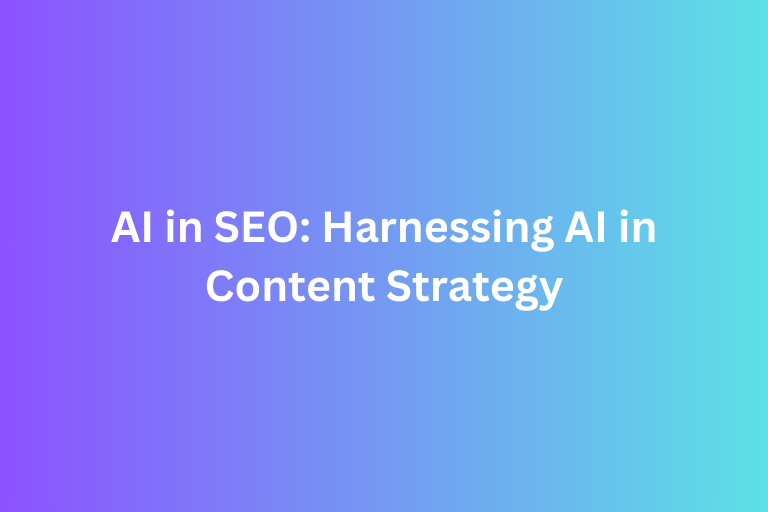SEO is about more than just keywords and backlinks—it’s also about security, user trust, and data privacy. Google prioritizes websites that provide a safe and transparent browsing experience, which means HTTPS and GDPR compliance are essential for ranking success.
With cybersecurity threats increasing and global privacy laws evolving, search engines now favor secure, GDPR-compliant websites. Failing to meet these standards can result in ranking penalties, loss of traffic, and legal consequences.
This guide will explain how HTTPS and GDPR compliance impact SEO and provide actionable steps to enhance your website’s security, trustworthiness, and search performance.
Why HTTPS & GDPR Compliance Matter for SEO
Google has emphasized security and privacy as ranking factors for years. Here’s why these two elements directly impact your SEO:
✅ HTTPS is a confirmed ranking signal – Google favors secure websites and marks HTTP sites as “Not Secure.”
✅GDPR compliance builds trust – Sites that protect user data earn higher engagement, lower bounce rates, and more conversions.
✅User experience (UX) is key – Secure, privacy-friendly websites reduce friction and boost dwell time.
✅Fines & penalties hurt rankings – Non-GDPR-compliant sites can face legal issues, fines, and search visibility loss.
By securing your site with HTTPS and ensuring GDPR compliance, you create a safer user experience that aligns with Google's ranking criteria.
1. How HTTPS Improves SEO & Site Performance
What is HTTPS & Why is It Important?
HTTPS (Hypertext Transfer Protocol Secure) encrypts data exchanged between users and websites, preventing cyber threats like hacking and data interception.
Google officially made HTTPS a ranking factor in 2014 and has since prioritized secure websites in search results. Chrome and other browsers now flag HTTP websites as insecure, reducing user trust and engagement.
SEO Benefits of HTTPS
- Higher Google Rankings – HTTPS sites rank better than HTTP sites.
- Improved Click-Through Rates (CTR) – Secure sites attract more clicks from SERPs.
- Better User Trust – Users feel safer entering sensitive information.
- Enhanced Page Speed – Modern HTTPS protocols (HTTP/2, TLS 1.3) improve load times.
How to Migrate to HTTPS Without Losing SEO
If your site is still on HTTP, migrating to HTTPS is crucial for SEO success. Here’s how:
- Obtain an SSL Certificate – Get an SSL certificate from a trusted provider (Let’s Encrypt, Cloudflare, or DigiCert).
- Redirect HTTP to HTTPS – Set up 301 redirects to avoid duplicate content issues.
- Update Internal Links & Sitemaps – Ensure all URLs point to HTTPS versions.
- Fix Mixed Content Issues – Ensure all scripts, images, and media files load securely.
- Update Google Search Console – Resubmit your HTTPS sitemap for indexing.
By switching to HTTPS, you enhance security, user trust, and search rankings.
2. GDPR Compliance & Its Impact on SEO
What is GDPR & Why Does It Matter for SEO?
The General Data Protection Regulation (GDPR) is a European privacy law that affects any website handling data from EU users. It enforces strict rules on:
- User data collection
- Cookie tracking
- Consent management
- Data security & transparency
Even if your business isn’t in the EU, GDPR affects global websites that attract European visitors. Google favors GDPR-compliant sites because they prioritize user safety, transparency, and ethical data handling.
SEO Benefits of GDPR Compliance
✔ Better User Engagement – Transparent privacy policies improve trust and retention.
✔Lower Bounce Rates – GDPR-compliant sites prevent intrusive tracking and unwanted ads.
✔Improved Mobile Experience – Privacy-friendly sites load faster and work seamlessly.
✔Avoid Ranking Penalties – Google penalizes sites with non-compliant data practices.
How to Make Your Website GDPR Compliant for SEO
Implement a Clear Cookie Consent Banner
- Use GDPR-compliant cookie consent tools (OneTrust, Cookiebot, Complianz).
- Allow users to accept, decline, or customize data colle
Use Transparent Privacy Policies
- Clearly state what data you collect, why, and how it’s used.
- Update your privacy policy page with GDPR-compliant language.
Enable User Data Controls
- Allow users to access, delete, or modify their personal data.
- Use GDPR-compliant analytics tools (Google Consent Mode, Matomo).
Secure User Data with HTTPS & Encryption
- Encrypt all user information to prevent data breaches.
- Ensure secure forms (contact, login, checkout) use HTTPS encryption.
Reduce Unnecessary Tracking
- Avoid aggressive retargeting ads and intrusive tracking scripts.
- Use server-side tracking instead of excessive third-party cookies.
By ensuring GDPR compliance, your site remains legally secure while improving UX and SEO rankings.
3. How Google Evaluates Security & Privacy for Rankings
Google’s algorithms assess websites based on E-E-A-T (Experience, Expertise, Authoritativeness, and Trustworthiness). Security and privacy play a crucial role in meeting these standards.
Key Google Ranking Factors Linked to Security & Privacy
✅ Site Security (HTTPS) – Google ranks secure sites higher.
✅User Trust Signals – Privacy-friendly sites have better engagement rates.
✅Data Transparency – Google penalizes sites that collect data without consent.
✅Page Experience & Core Web Vitals – GDPR-compliant, lightweight sites load faster.
✅Compliance with Google’s Security Guidelines – Failing security audits lowers rankings.
By aligning with Google’s trust signals, HTTPS and GDPR compliance enhance your site’s credibility and visibility in search results.
4. Action Plan: Secure & Optimize Your Site for SEO in 2025
Step 1: Implement HTTPS & SSL Security
- Install an SSL certificate & enable HTTPS site-wide.
- Use HTTP/2 or HTTP/3 forfaster load times.
Step 2: Ensure GDPR Compliance
- Add a cookie consent banner & privacy policy.
- Minimize user data collection & improve transparency.
Step 3: Optimize for Google's Trust Signals
- Improve page speed & security headers (HSTS, CSP).
- Use GDPR-friendly analytics (Google Consent Mode).
Step 4: Monitor Security & Privacy Performance
- Use Google Search Console to check security issues.
- Regularly test site security & compliance with GDPR tools.
By following this action plan, you can boost your SEO rankings, build trust, and future-proof your website.
Final Thoughts: The Future of SEO is Secure & Privacy-Driven
Google’s search algorithm rewards security, privacy, and trustworthiness. By implementing HTTPS and GDPR compliance, your site will:
- Ranking higher in Google
- Protect user data & prevent security threats
- Improve user trust & engagement metrics
- Ensure fast, privacy-friendly browsing experiences
To stay competitive, prioritize security and transparency in your SEO strategy—because the future of search is privacy-first.
Improve your website performance with FoxAdvert!
If you are looking forward to improving your website and ad performance, our professional team of SEO and Digital Marketing experts at FoxAdvert can help you. Contact us today to start your journey 😊











